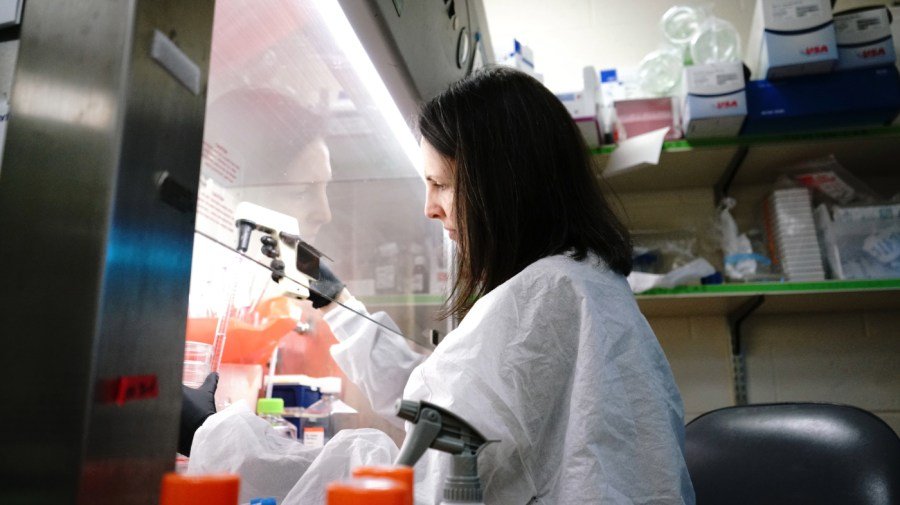
The potential diversion of government funds for biomedical research has sparked intense debate in recent weeks. Understandably, many in the medical and scientific communities are concerned about what these changes might mean for the future of groundbreaking discoveries, treatments and cures.
Yet, for those of us in the private sector who have long recognized our role in funding innovative research, this is not a new conversation. Government funding has always been subject to shifting priorities, political cycles and budgetary constraints.
This doesn’t mean the government doesn’t have a role to play; it does, but it is ultimately the private sector that can and must step up and lead the charge in the continued advancement of biomedical research.
As someone who has lived with retinitis pigmentosa, a degenerative eye disease that left me blind decades ago, I understand the importance of biomedical research on a deeply personal level. I know firsthand what it means to live with a condition for which there is no cure, and I know how vital it is that we invest in ground-breaking scientific studies and innovations, which can lead to breakthroughs and transform lives.
After years spent in business, building and innovating in companies at the top of the luxury casino and hotel industry, my true passion lies in funding medical research that has the potential to eradicate previously intractable diseases and create not just life changing, but lasting, impact.
I have also been deeply involved in supporting medical research through my work with the Cleveland Clinic, one of the world’s leading medical research centres.
The Cleveland Clinic has long been at the forefront of pioneering advancements in neurology, cardiology, cancer treatment and ophthalmology. Their innovative research has led to breakthroughs in patient care and improved countless lives.
Through philanthropic efforts and private investment, we have supported pioneering studies that push the boundaries of what is possible in modern medicine. Institutions like the Cleveland Clinic serve as a testament to what can be achieved when the private sector steps up to fund research that changes lives.
It would be a mistake, however, to suggest that the government has no role to play. Public funding remains a crucial component of biomedical research.
The United States has historically been a global leader in medical innovation, largely due to strong government support for research institutions, universities and public-private partnerships. However, the allocation of resources is always subject to political pressures and economic realities, and often also to the whims of bureaucracy.
The current administration, for instance, has undertaken an extensive review of federal spending, and while there are concerns about potential cuts to research funding, I remain optimistic and feel confident that biomedical research will remain a priority. The United States has long been the leader of the world in medical innovation, achieving scientific breakthroughs and providing solutions for those suffering from life-threatening diseases.
But with all this said, we cannot afford to wait for, or rely solely on, government action and we must shoulder our responsibility equally. Private investment is essential to ensuring continued leadership in biomedical research, particularly in times of economic uncertainty or shifting political landscapes.
Those of us committed to finding cures for diseases must remain steadfast in our dedication, regardless of the level of public funding available. The stakes are simply too high to do otherwise.
The private sector has long demonstrated its ability to drive innovation and bring about transformative change in ways that government alone cannot.
The pharmaceutical industry, for example, has been responsible for developing life-saving drugs and treatments that have extended and improved countless lives. Venture capital and philanthropic investments have propelled the advancement of experimental therapies and novel approaches to disease treatment.
Biomedical research is not just about science, it is about people.
It is about the millions of individuals around the world who are suffering from diseases that we have the power to cure or prevent. It is about the families who have lost loved ones to illnesses that, with the right investment, could one day be eradicated. It is about future generations who deserve to live in a world where conditions like HIV/AIDS, cancer and neurodegenerative diseases no longer pose a threat to human life.
For those of us who have the privilege of being able to help, the time to act is now. The world has seen the incredible progress that private investment in medical research can achieve. We must continue to support this work, ensuring that scientists have the resources they need to make the next groundbreaking discovery.
For me, this mission is personal. While I may no longer be able to see, I live in faith of a brighter future that will one day prevent others from facing the same reality.
Our collective commitment to biomedical research must be unwavering. Millions of lives depend on our efforts, and the future of human health demands it.
Steve Wynn is an accomplished businessman, investor and philanthropist who has supported and invested in biomedical research for decades


